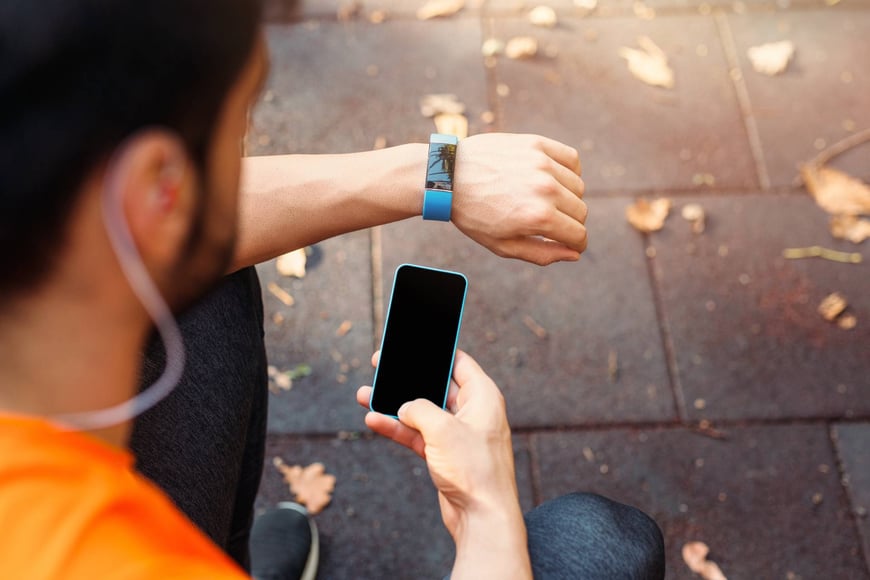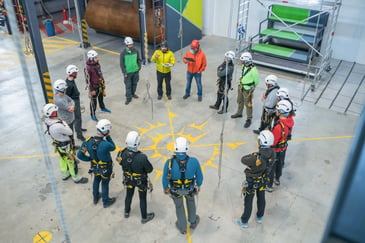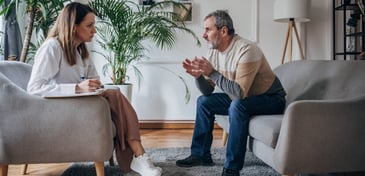The client was referred to OccHealth by Altius’ Recovery and Wellness Initiative (RAWI) in January 2020. He suffered a left knee injury in April 2017 following a slip and fall in his Café business. This case demonstrates the progress the client made along his recovery journey through RAWI Remote, utilising TeleHealth.
The client’s work accident resulted in two and a half years of surgery, further investigations and a stagnation of his progress. As a result of his injury, he required additional staff to assist in the running of his Café which increased financial stress. He was also becoming extremely deconditioned and fear-avoidant of engaging in physical activities that he once loved including walking and weights training.
RAWI Goals/Challenges
- Addressing psychosocial barriers.
- Increasing motivation, confidence and participation in activities of daily living.
- Improving fitness and building a regular physical activity routine.
When the RAWI commenced, the client was very fearful of exercise due to a previous exacerbation and avoided walking for leisure, engaging in activities around the house and was unable to effectively perform his work duties. Being self-employed, the client had a strong urge to return to his pre-injury duties but lacked the confidence in his body’s ability to improve its function.
The RAWI Program
RAWI provided support and encouragement to assist with motivation and gradually increasing activity levels. Sessions were supervised within the client’s local gym to increase social engagement, where suitable equipment and exercises were identified to not only rehabilitate the client’s left knee but improve wholistic strength and conditioning.
Additionally, the program was aimed at improving the client’s self-efficacy and confidence with using his left knee to perform his work duties and leisure activities.
In addition, the RAWI was also delivered via TeleHealth on a weekly basis. This allowed the client to continue his treatment from the comfort of his own home. This also allowed the RAWI to assist the client in modifying his activities of daily living and leisure activities so that he could re-engage in activities that were meaningful and enjoyable. The client was provided with a smartphone app that displayed his exercise program in video format to ensure he was able to complete the program as required.
Education was provided around the importance of regular activity and improving functional strength and fitness to facilitate return to work on pre-injury duties. Strategies around pacing were discussed and implemented to facilitate a graded and durable return to pre-injury duties. The RAWI was established to assist with improving strength and promoting the development of routine, for which the client was regularly supported, both face-to-face and digitally, to ensure consistency and program compliance.
RAWI – Results:
- Work capacity was upgraded from reduced hours (6 hours per day, 5 days per week initially) to full time hours each day, normal hours per week on pre-injury duties, as a result of his participation in RAWI.
- After 3 years since the injury occurred, the client has returned to working full-time at the Café, being able to perform all the requirements of his pre-injury duties.
- PSEQ Self-Efficacy scores increased from 21 indicating low confidence to 31 indicating moderate confidence in performing work and daily living tasks despite present pain.
- WHO5 Wellbeing and Quality of Life score increased from 44% indicating low perceived wellbeing and quality of life to 56% indicating improved and moderate wellbeing and quality of life.
- Improved exercise adherence to 4 times per week as a result of the engagement in Physiapp and TeleHealth video consultations, as the client was able to perform the exercises in the comfort of his home around the demands of life.






